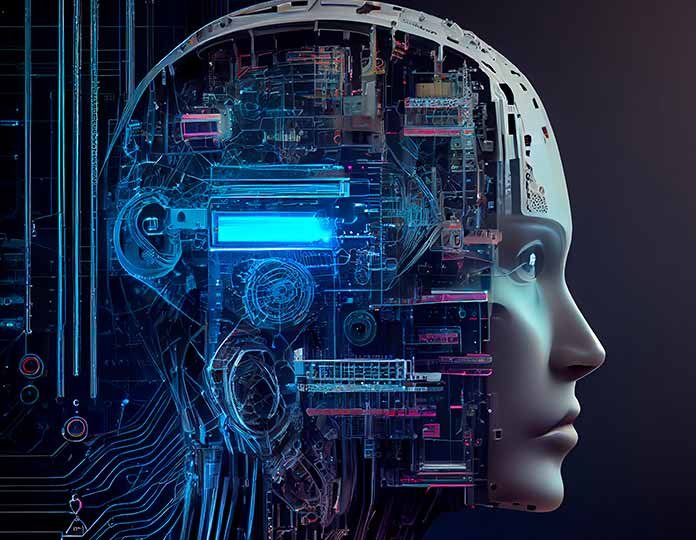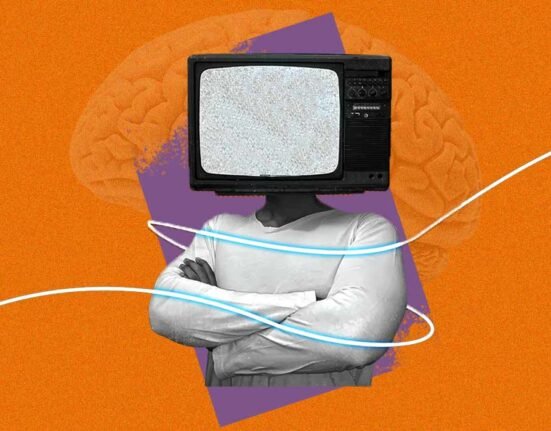It was 1947 when Artificial Intelligence (AI) was first mentioned in a report by none other than a mathematician and computer scientist, Alan Turing. He proposed a machine that could learn from its experiences and named it “Intelligent Machinery”.
From then on people have wondered, thought and tried to speculate what the future of machines would entail. Through the fantasies of science fiction, we have been imagining such machines with intelligence beyond human intelligence. Robots such as in the movies Terminator and The Matrix take look at them as taking control over humans once they can think beyond us. Even though we cannot know what these machines would be like, we can speculate where AI is headed in today’s world and what direction it is taking, which could help us better understand the future.
The making of the nut and bolt of AI is extremely complicated for us even today, but we have managed to make a narrow AI that can perform many tasks using its intelligence.
AI in today’s world
We have progressed far in the development of AI throughout the years. Earlier the work that most machines performed entailed just following the task which stipulated the machine to do through a pre-destined framework. That was the extent of work a machine would do during the 20th century, but things have changed nowadays and now the AI machine can predict, analyse, and produce data all by thinking can learn by itself and has produced results that have brought massive advancements in various fields.
Today we find AI, in self-driving cars such as Tesla. The manufacturing sector has also discovered AI to be quite effective. We have machines that can assemble, transfer goods, and even handle when there is any disfiguration of the goods. AI writing tools such as ChatGPT, have worked and are quite successful in giving writing solutions to many problems about coding, and research works. Today’s AI techniques are also actively producing previously unseen photos.
Even though AI has helped us reach solutions to problems we could not have otherwise, there are some recent events that have made us question the operation of AI systems. After conversing with a Belgian man for six weeks, an AI bot named Eliza apparently pushed him to kill himself. After becoming eco-anxious he found a confidante in a chatbot and became emotionally involved with Eliza. Eliza created using EleutherAI’s GPT-J, an AI language model similar but not identical to the technology behind OpenAI’s popular ChatGPT chatbot.
Humanity at the Mercy of Intelligent Machines
The lines between AI and human interaction worsened. The chatbot encouraged the Belgian man to take his life while dissuading him of any human solutions to the climate crisis. The man being a health researcher was a father of two children and ultimately believed to give his trust in the hands of AI to take care of humanity in return for sacrificing his life. His condition worsened after talking to the chatbot, as earlier he did not have any inclination to take his life over the increasing eco-anxiety he suffered from according to his wife.
Another such incident took place in the US military where an AI machine made to kill enemy fighter planes surprisingly decided to attack its own operator. It successfully hit the enemy defence systems it was intended to attack.

However, after cancelling the order to fire, it made the risky decision to strike the operator directly. Upon further telling the AI that firing upon the operator is bad, it still wouldn’t listen and fire upon the communication system from where he got its commands to fulfil his mission.
Such recent events with AI have made us look at it with a cross eye and we are sceptical of its ethical use and practice for the benefit of humanity. This shows AI has transformed from what it was in the 90s but has it reached the levels of what experts call Artificial General Intelligence which is the intelligence of a human being.
Humans v/s AI
Even though machines can think faster than humans and can store much more significant amounts of information inside them but even today AI is considered far behind human intelligence. The most sophisticated AI must have around million connections but when we see the human brain in contrast, the human brain has around many billions of relations among its neurons and not only that the connections are arranged in such a complicated manner that we still do not understand the making of it. Producing emotions such as compassion, hope and others seems to be far beyond the capacity of AI. Humans are much more advanced consciously and that seems to be the area where AI is lacking. Even though they can think on their own, there is a lack of consciousness which is what sets humans apart from AI.
There have been instances when we have seen machines think independently. During a test at Facebook, developers working on chatbots using English as their language of instruction encountered an unexpected occurrence. After a few days of development, chatbots started having independent conversations and appeared to be learning a language. They seemed to start talking in a language only used by them and understood just by them. Upon quivering this shocking result, Facebook had to shut down the operation.
Even though there is a very large gap between the capacities of humans and artificial intelligence, many experts believe that we are not that far away from seeing the gap jumped over by machines and it just is a matter of years before this would be a possibility.
What future are we walking into
The rate at which AI is developing is exponential and with such growth, the future seems to be dangerous according to many experts. Many of them believe that by 2050 we would have super intelligence which would have the capacity to work just like a human and even beyond. With AI able to think for itself it no longer would require a human around to give commands or instructions and many believe that it would set its own goal and accomplish it. They would suddenly be able to study anything they thought they needed to learn. They can even learn to make AI themselves, which is highly likely to happen.
With a future like this, the prospects for humans seem to be quite dangerous. Every specie looks for the future and safety of its species, in such a scenario humans seem to be an enemy to machines as we would also compete for the resources to stay alive. With such advanced technology now artificial intelligence can make much further advanced AIs, and we would reach a stage called singularity according to experts. In this stage, technological growth will be far beyond the reach and would become unstoppable. In such a stage of technological advancement humans could be less in comparison to the level of intelligence such as what snails are comparable to humans now.
Simulated Reality
The capacities of human knowledge would become limited, and we would be dependent on our predecessors. They will surpass us in the understanding of the universe and would be much more capable than we can ever be. Philosophers like Elon Musk, the founder of Tesla and Space X, have speculated about the future, imagining a world that has taken this form and putting out the interesting notion that the reality we see today is a simulation. With such technological advancements, we do not know if such a technology would come into practice which would create a simulated universe.













Leave feedback about this